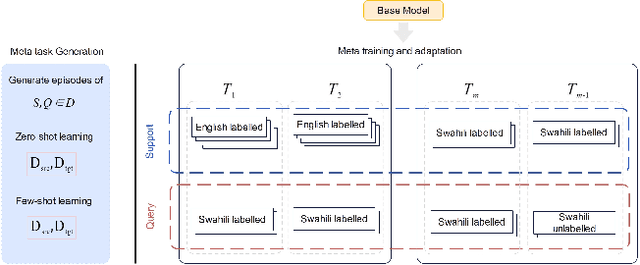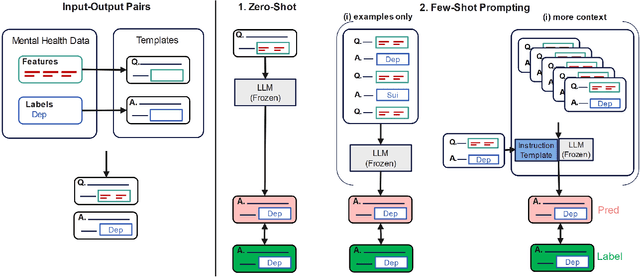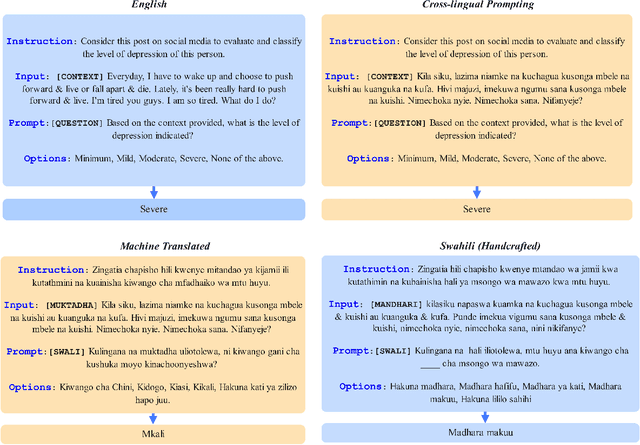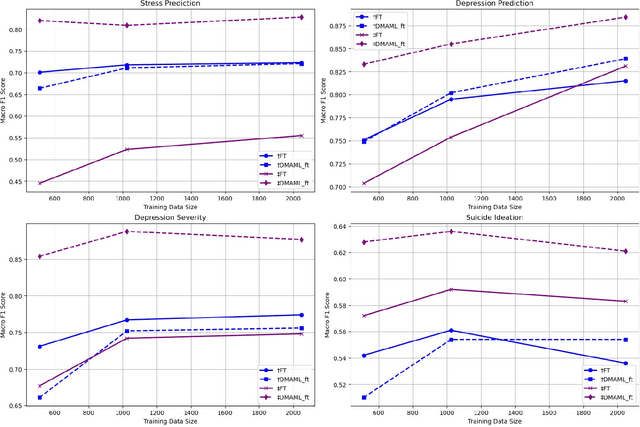Adapting Mental Health Prediction Tasks for Cross-lingual Learning via Meta-Training and In-context Learning with Large Language Model
Paper and Code
Apr 13, 2024



Timely identification is essential for the efficient handling of mental health illnesses such as depression. However, the current research fails to adequately address the prediction of mental health conditions from social media data in low-resource African languages like Swahili. This study introduces two distinct approaches utilising model-agnostic meta-learning and leveraging large language models (LLMs) to address this gap. Experiments are conducted on three datasets translated to low-resource language and applied to four mental health tasks, which include stress, depression, depression severity and suicidal ideation prediction. we first apply a meta-learning model with self-supervision, which results in improved model initialisation for rapid adaptation and cross-lingual transfer. The results show that our meta-trained model performs significantly better than standard fine-tuning methods, outperforming the baseline fine-tuning in macro F1 score with 18\% and 0.8\% over XLM-R and mBERT. In parallel, we use LLMs' in-context learning capabilities to assess their performance accuracy across the Swahili mental health prediction tasks by analysing different cross-lingual prompting approaches. Our analysis showed that Swahili prompts performed better than cross-lingual prompts but less than English prompts. Our findings show that in-context learning can be achieved through cross-lingual transfer through carefully crafted prompt templates with examples and instructions.
 Add to Chrome
Add to Chrome Add to Firefox
Add to Firefox Add to Edge
Add to Edge